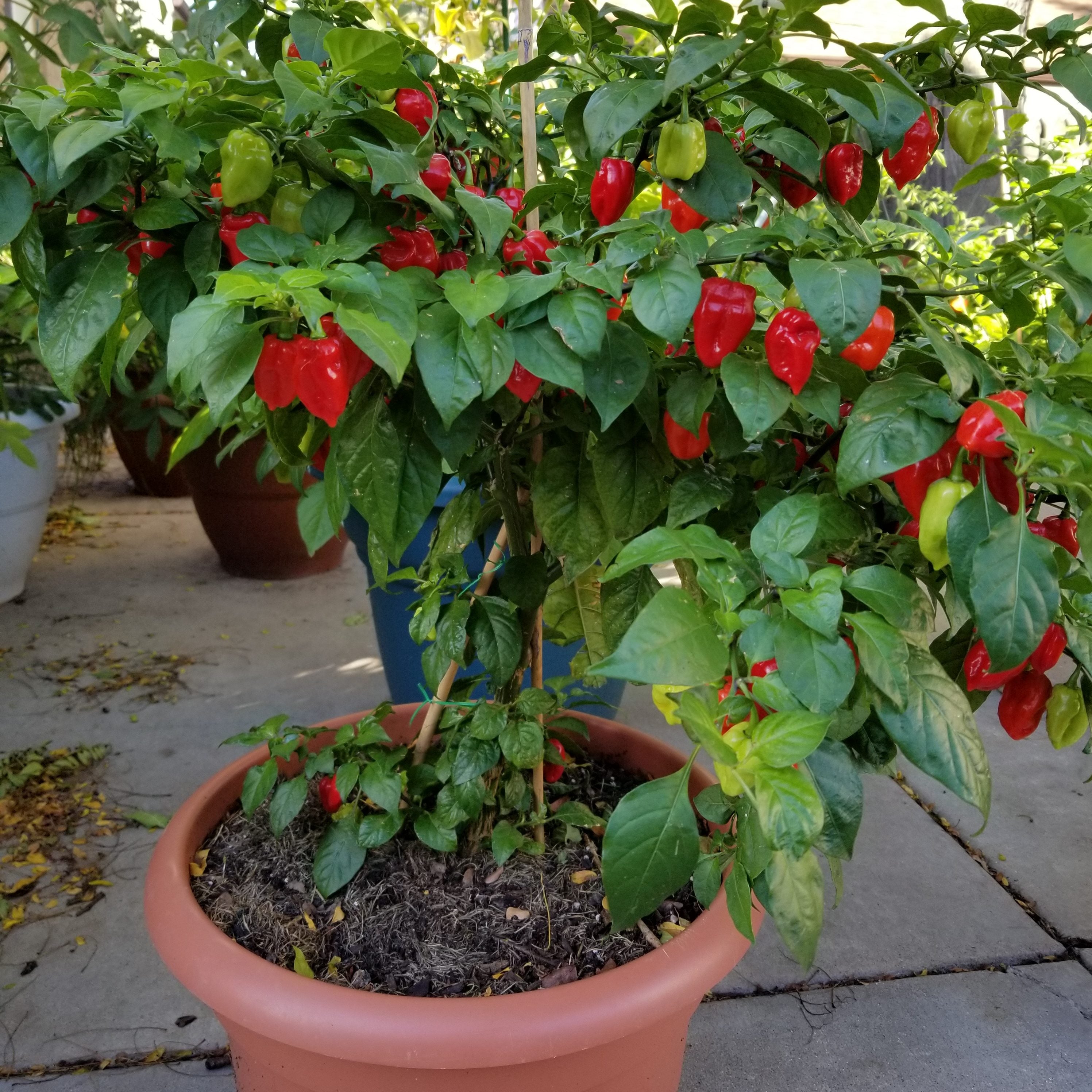Best Fertilizers for Peppers: A Comprehensive Guide to Boost Your Harvest
Best Fertilizers for Peppers: A Comprehensive Guide to Boost Your Harvest
Blog Article
Organic Vs. Synthetic Fertilizers: Which Is Best for Supporting Healthy And Balanced Pepper Plants?
In the realm of nurturing healthy and balanced pepper plants, the choice between natural and artificial plant foods stands as a critical decision with far-reaching effects. While both alternatives objective to supply essential nutrients to support plant development, the subtleties of their effect on the soil, plant wellness, and the atmosphere trigger a discussion that mirrors throughout the gardening community. Recognizing the distinctive advantages and prospective mistakes of each fertilizer type is essential for pepper cultivators seeking to maximize their returns while maintaining a sustainable and eco-conscious strategy.
Benefits of Organic Fertilizers
Organic fertilizers supply a lasting and environmentally-friendly technique to beneficial pepper plants, supplying important nutrients without the use of artificial chemicals. These all-natural plant foods are originated from organic sources such as garden compost, manure, bone dish, and algae, advertising dirt wellness and biodiversity. Unlike artificial fertilizers, natural options release nutrients slowly, guaranteeing a well balanced and stable supply for pepper plants to flourish.
One significant benefit of natural fertilizers is their capacity to enhance soil framework and water retention. By enhancing soil health and wellness, natural plant foods promote valuable microbial activity, which assists in nutrient uptake by pepper plants. Furthermore, natural fertilizers decrease the danger of chemical run-off, shielding water resources from pollution and securing the environment.
Additionally, natural plant foods add to long-lasting soil fertility by promoting the development of beneficial dirt organisms. These organisms help damage down organic matter, releasing nutrients in a form that is quickly available to pepper plants. best fertilizers for peppers. By fostering a healthy dirt ecological community, organic plant foods sustain lasting pepper cultivation techniques that benefit both plants and the atmosphere
Drawbacks of Artificial Fertilizers
Synthetic plant foods, in contrast to their natural equivalents, present different drawbacks when made use of to nourish pepper plants, influencing both plant wellness and ecological sustainability. One significant disadvantage of synthetic plant foods is their propensity to seep nutrients from the dirt rapidly.
Moreover, the overuse of synthetic fertilizers can add to water air pollution. Excess fertilizers not absorbed by plants can get rid of right into water bodies, causing eutrophication, where algae blossoms deplete oxygen degrees in the water, harming marine life. Moreover, synthetic plant foods are usually originated from non-renewable sources, such as nonrenewable fuel sources, contributing to carbon discharges and environmental deterioration throughout their manufacturing.
Nutrient Absorption Contrast
Efficient nutrient absorption plays a critical duty in the overall health and growth of pepper plants. When contrasting natural and synthetic fertilizers in regards to nutrient absorption, natural fertilizers have the benefit useful link of offering a more well balanced and slow-release source of nutrients (best fertilizers for peppers). Organic fertilizers include a variety of macro and trace elements that are not only useful for the plants but likewise advertise healthy soil microbial activity, which helps in nutrient uptake. On the various other hand, artificial fertilizers usually provide a fast release of nutrients, which can cause leaching and runoff, resulting in lower nutrient absorption rates by the plants.
In addition, organic fertilizers improve dirt structure and water retention capability, enabling pepper plants to gain access to nutrients extra successfully. This improved soil quality promotes origin advancement, enabling better nutrient absorption. Artificial plant foods, although at first boosting plant growth because of their high nutrient concentrations, might impede lasting nutrient absorption by degrading soil wellness in time.
Environmental Effect Factors To Consider

On the other hand, artificial plant foods, although typically even more concentrated and instantly available to plants, can have harmful results on the atmosphere otherwise used correctly (best fertilizers for peppers). Their production calls for high power inputs, resulting in greenhouse gas exhausts and contributing to environment change. Moreover, the runoff of excess synthetic fertilizers can infect my review here water sources, resulting in eutrophication and harming marine ecological communities.
Ideal Fertilizer Practices for Peppers
To accomplish this, it is vital to adhere to finest plant food methods tailored to the certain needs of pepper plants. One crucial technique is to perform a dirt test before using any type of fertilizers.
One more crucial technique is to feed pepper plants at the correct time. Typically, peppers take advantage of receiving plant food at planting and after that once more when they start to blossom. Over-fertilizing can bring about nutrition inequalities and harm the plants, so it is important to comply with suggested application rates.
Additionally, selecting a balanced plant food with an NPK ratio that fits pepper plants' requirements is essential. Eventually, incorporating synthetic and organic plant foods judiciously can assist nurture healthy pepper plants while lessening environmental effect.
Conclusion
:strip_icc()/BHG-Growing-Peppers-Indoors-EzgaEnB7KML9Ym_plkvuxK-9398f1341d86483083862533ae7622db.jpg)
Organic fertilizers offer an environmentally-friendly and sustainable method to nourishing pepper plants, giving important nutrients without the usage of artificial chemicals. Unlike artificial fertilizers, organic options release nutrients gradually, guaranteeing a balanced and constant supply for pepper plants to thrive.
Artificial fertilizers, in comparison to their natural equivalents, position numerous downsides when utilized to nourish pepper plants, influencing both plant wellness and ecological sustainability. When contrasting synthetic and organic fertilizers in terms of nutrient absorption, organic plant foods have the benefit of giving an extra balanced and slow-release source of nutrients.In addition, natural fertilizers improve soil framework and water retention capacity, permitting pepper plants to accessibility nutrients extra efficiently.
Report this page